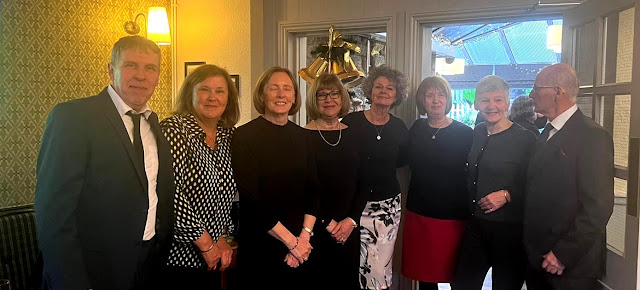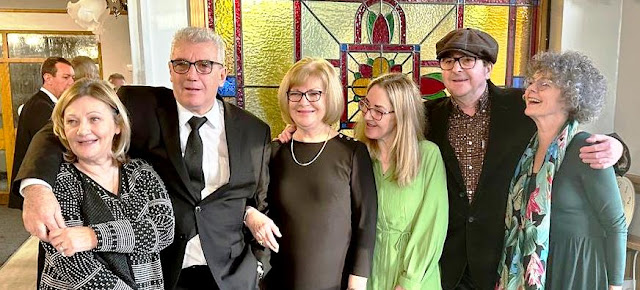The last uncle is pushing off
in his funeral skiff (the usual
black limo) having locked
the doors behind him
on a whole generation.
with our torn scraps
of history, alone
on the mapless shore
of this raw new century.
From her collection, The Last Uncle, W. W. Norton & Company (2003)
My last two uncles died a couple of months apart, at the end of 2022 and the beginning of 2023. At one of their funerals a cousin expressed the same idea that Linda Pastan so eloquently describes in the second stanza of her poem: we are the older generation now.
The idea of being next in line 'to die' does not bother me. I am deeply grateful for all of my own 'torn scraps of history' and I do not feel alone on any shore. I don't know what lies ahead and I have no need to imagine what it might be. Not beleiving in any kind of afterlife, or second chance, is a comfort rather than the source of any fear. Having survived to be a part of the older generation feels like a gift, not a burden, or riven with loss.
While we were waiting outside the chapel of rest for Uncle Michael's coffin to be taken inside I heard the ubiquitous, unintelligible call of the rag and bone man along the main road beyond the cemetery's gates. The juxtaposition was both startling and somewhat reassuring. Is there always some use for what is thrown away or discarded, what is unwanted, abandoned? Even our bones and flesh, once our consciousness has departed?
It's not something I shared with my cousins. I understand that hymns and prayers are what a lot of people need at funerals rather than any practical rationalisations.
At the wakes, at both funerals, we took a photo of 'all the cousins'. Two different sets from my mother's and father's sides of the family. It was as if all of us, maybe unconsciously, wanted a record of who we were now. The grown-ups. The elders of the tribe. Let's celebrate this, the photos seem to say. And we did.


Comments